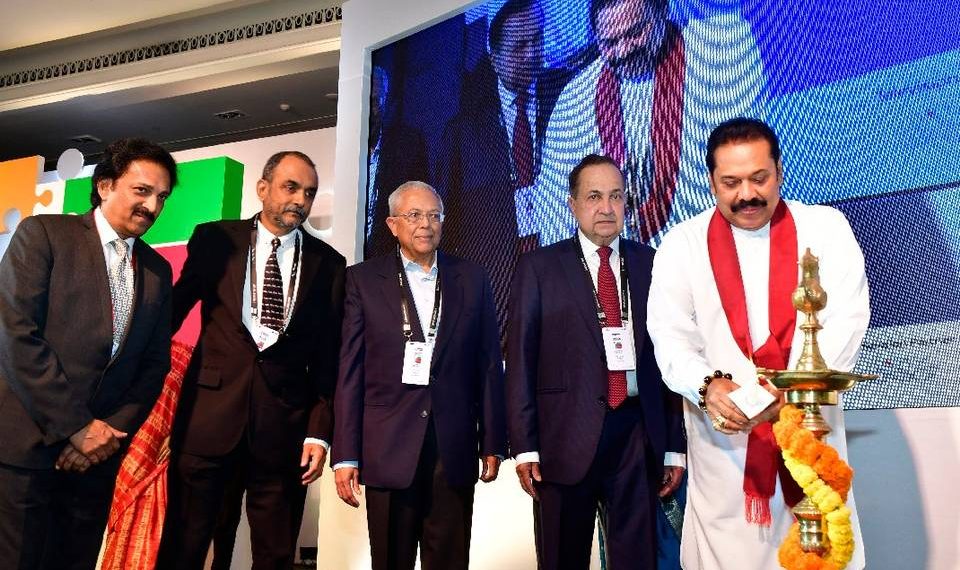
Colombo, February 9 (newsin.asia): Mahinda Rajapaksa, Leader of the Opposition in the Sri Lankan parliament and a former Sri Lankan President, has strongly urged the governments of India and Sri Lanka to revive the “Troika” system which managed relations between the two countries during the crucial final phase of the war against the separatist Liberation Tigers of Tamil Eelam (LTTE).
Speaking on India-Sri Lanka relations at “The Huddle 2019” organized by The Hindu in Bengaluru on Saturday, Rajapaksa said: “You would recollect that a novel mechanism was in place during our time in government and in particular when we, as a country, fought against the most cruel terrorist organization in the world. The Troika, as it was known, helped in no small measure to build a bridge between the leaderships and the associated thought processes of our two countries and thus prevented any misunderstandings when Sri Lanka was engaged in a crucial war against terrorism.”
The relationship in the Troika was “friendly and casual” and that produced the desired outcome, Rajapaksa said.
“I say without any hesitation, that India’s deep understanding of our government’s motive was a key factor that helped us eradicate terrorism. The respective leaderships were consistently and continuously briefed by the relevant Troika thus promoting the high level of understanding that was required to keep the relationship dynamic,” he added.
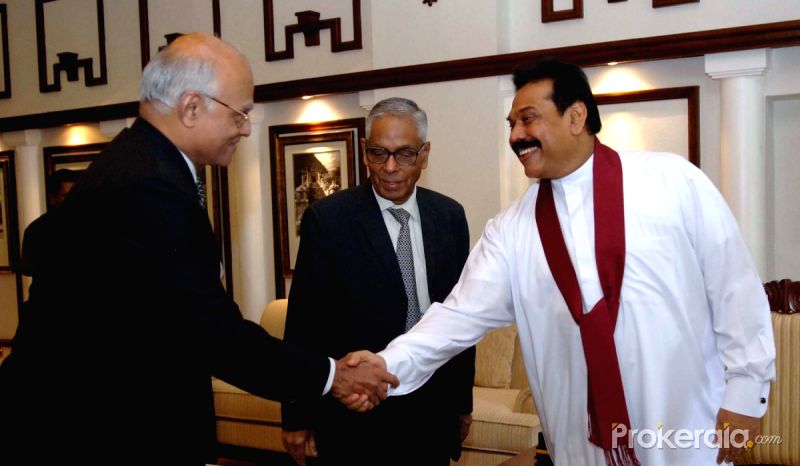
The Troika
In 2008, when Eelam War IV was in its critical last stage, the then Indian High Commissioner in Sri Lanka, Alok Prasad, prompted by Sri Lankan Defense Secretary Gotabaya Rajapaksa, asked Lalith Weeratunga, Secretary to the then Sri Lankan President Mahinda Rajapaksa, if Colombo would appoint three people close to the President to constantly be in touch with a similar group of people in India to manage India-Sri Lanka relations as the war was on.
President Rajapaksa responded promptly and named Basil Rajapaksa, at that time Senior Advisor to the President; Gotabaya Rajapaksa, the then Defence Secretary; and Lalith Weeratunga, the then Secretary to the President; as his “Troika”.
High Commissioner Alok Prasad then informed President Rajapaksa that India had named M.K. Narayanan, National Security Advisor, Shiv Shankar Menon, Foreign Secretary and Vijay Singh, Defence Secretary, as India’s “Troika.”
The two Troikas met frequently and informally, and sorted out many matters with ease.
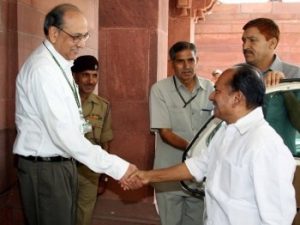
Writing about the value of the Troika, Lalith Weeratunga said: “In my opinion, this initiative was more useful to Sri Lanka than to India because we were then in the thick of fighting the LTTE and it was crucial that India was fully aware of what the Sri Lankan government and its Armed Forces were doing. The personnel involved in the Troika could not only place facts with authenticity, but could also take decisions on behalf of their respective governments. Had there been any issue arising out of these discussions, any member in either of the teams could be on the phone to the leadership and obtain advice on further action.”
It is this mechanism which Rajapaksa wanted to be revived in his speech in Bengaluru because he believed that “through an active dialogue any misunderstandings could be averted.”
Further justifying the revival of Troika, Rajapaksa said: “The traditional government to government dealings alone cannot give shape to our future relations because the world is becoming more complex by the day. However, political leaders would continue to play the most coveted role as they determine policies, be it foreign, economic, security, and a host of other policies that would impinge on our bilateral relations.”
“Tangibles like these are easier to monitor and even control, but intangibles pose grave threats. Political leaders and other societal leaders must always keep a tab on the intangibles; for instance, a wrong word from a leader would sour the relations as we have witnessed in the past.”
“It would not be out of place for me to state upfront that a strong mechanism at the country-to-country level, fully endorsed and supported by each of our governments, should be in place to clear any misunderstandings that may crop up from time to time. The Troika system should have been a forum that we should have continued. Perhaps there is still opportunity to bring it back from 2020.”
Troika For National Security
Turning to the importance of having a Troika mechanism for ensuring national security, Rajapaksa said: “Interestingly, in recent times, maritime security in the Indian Ocean has become an important issue in regard to respective national security of our two countries. In future bilateral relations, Indian Ocean maritime security too would be an important aspect in forging a well-founded strategy. In all these, I strongly believe that a vibrant, on-going dialogue between the two countries would ensure each other’s national security. This dialogue, as I have emphasized earlier, should transcend the normal diplomatic boundaries and there are experiences such as the Troika that we could draw from.”
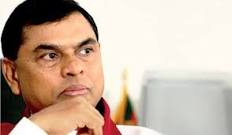
Problems Created by Regime Change
Rajapaksa obliquely alluded to the alleged Indian role in bringing about the regime change in Sri Lanka in 2015 in which he lost power. He said this was due to the lack of communication.
“Since the 1980’s the relationship between our two countries, remained very fragile. But in 2005, when I was elected President, I made it a point to establish a good working relationship with India. However, the second major breakdown of bilateral relationships took place in 2014. The government that had ruled India for a decade was voted out in 2014. Unfortunately, the working relationship that existed between my government and the outgoing government of India did not roll over to the new government of India formed in 2014. Lack of communication between both parties seems to have led to this situation.”
“Communication is such a vital factor that can be the make or break in strengthening our countries’ relations. Therefore, an open line of healthy and constant communication, should always be the focus even in the coming years,” he said.
“In hindsight, the misunderstandings of the 1980’s as well as that of 2014, were aberrations that could easily have been avoided. It’s key that India and Sri Lanka evolve a mechanism to prevent these misunderstandings from taking place,” Rajapaksa said.
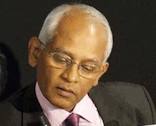
Need To Ensure Political Instability
Rajapaksa said that one of the cornerstones of good and stable bilateral relations is political stability based on a strong government. He was hinting that a strong government led by him had been replaced by a weak one from which neither India nor Sri Lanka had gained.
“A strong government and political stability would always facilitate the blossoming of bilateral relations. In future bilateral relations between our two countries, strong political leadership would be a key factor towards a vibrant bilateral relationship,” Rajapaksa said.
Need For Policy Continuity
Rajapaksa pleaded for policy continuity even after regime change so that bilateral relations remain on an even keel.
“Despite the snag of 2014, the opposition coalition that I lead now, has a good understanding with the ruling party in India. In their dealings with Sri Lanka, my suggestion to India, is that the rule of thumb with regard to India-Sri Lanka relations should be that if the outgoing party had an adequate working relationship with Sri Lanka, the incoming party should give due recognition to that fact and continue the relationship on that basis.”
“Past experience has shown that the danger of disruption in our bilateral relationship arises in the immediate aftermath of changes of government. Such easily avoidable disruptions have had serious consequences for both countries,” Rajapaksa said.
Give and Take In Security Issues
Referring to national security issues between Sri Lanka and India and alluding to the feeling in Sri Lanka that while India makes demands on Sri Lanka, Sri Lanka’s concerns are not being taken into account by India.
“Since we are geographically in very close proximity, we have mutual obligations to ensure the security of each other. Often, we have heard the Indian leaders emphasizing the need for Sri Lanka to ensure that the Sri Lankan soil is not used by any third party that would pose a threat to India. Similarly, we too would want India to ensure that any threat from any groups operating within Indian soil does not pose a threat to Sri Lanka,” he said.
Maritime Security
On the current worldwide concern about maritime security in the light of concerns in India and the West over China’s rise as a maritime power, Rajapaksa said: “ In future bilateral relations, Indian Ocean maritime security too would be an important aspect in forging a well-founded strategy. In all these, I strongly believe that a vibrant, on-going dialogue between the two countries would ensure each other’s national security. This dialogue, as I have emphasized earlier, should transcend the normal diplomatic boundaries, and there are experiences such as the Troika that we could draw from.”
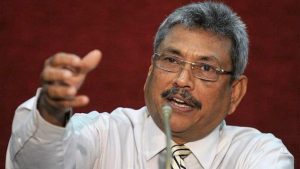
Wider Application of Troika System
Rajapaksa said that the Troika system should go beyond security matters to other areas of bilateral relations.
“Through the Troika, we can go further to create forums and collaborations that take into consideration the pressing social, economic and cultural issues that affect our peoples, and elaborate on best practices and advances that we could learn from one another. The formulation of such an entity is foremost in my party’s plans for the future,” he said.
Issue of National Assets
One of the major concerns in Sri Lanka is a tendency of governments to alienate national assets like ports and airports etc. to foreign powers. Sometimes this is done to balance relations with foreign powers. If China is given a project to build a port in Hambantota, India must be given the Mattala airport or the Trincomalee port or the Eastern Container Terminal in Colombo. If China is given projects in Sinhala-speaking South Sri Lanka, India must be compensated with projects in the Tamil North. The concern among Lankans is that this way, there would be nothing left for Sri Lankans to own.
Alluding to this issue, Rajapaksa said: “An important facet of economic stability is how we look at our national assets. No country, in my understanding, can achieve economic stability by disposing of national assets. I would emphasize that a policy advocating sale of national assets inevitably generates tensions among our people, and this has a negative effect on our relations with the country acquiring these assets, whatever that country may be. This has been our stark experience in the recent past. This does not, however, mean we should not explore joint initiatives for mutual benefit,” he said.
(The featured image at the top shows Sri Lankan Opposition Leader and former President Mahinda Rajapaksa lighting the traditional oil lamp at the inauguration of The Huddle 2019 organized by The Hindu in Bengaluru.Photo: The Hindu)
